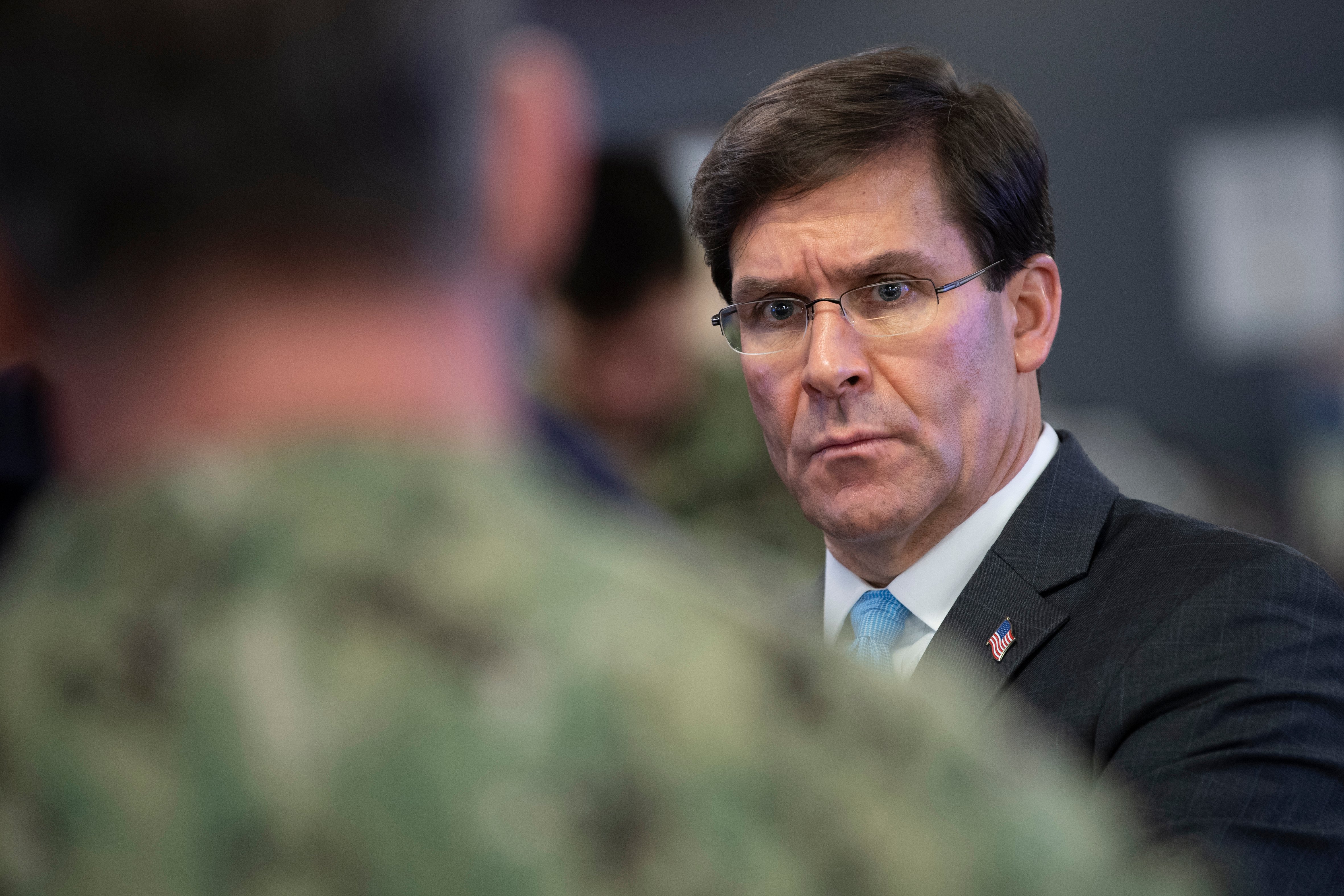
Secretary of Defense Mark Esper has signed a stop movement order that halts most Department of Defense travel until June 30 as the Pentagon tries to stop the spread of COVID-19 through the force.
The new order allows the service branches to continue recruitment-related travel, including bringing recruits to basic training, advanced training and follow-on travel to first duty assignments. Travel to seek medical treatment is also authorized. Most other official military travel – including permanent change of station travel – is halted without a waiver from a service branch secretary, combatant commander, or chairman of the joint chiefs of staff.
“The coronavirus disease 2019 (COVTD-19) continues to present significant risk to our forces as the DoD considers domestic and overseas personnel travel. These movements present the threat of spreading COVID-19 within our ranks and communities. My priorities remain: protecting our Service members, DoD civilians, and families; safeguarding our national security capabilities; and supporting the whole-of-nation response,” Esper wrote in his order.
As of Monday morning, the Pentagon reported 3,438 active-duty personnel had tested positive for COVID-19. An additional 1,897 dependents, civilian and contract employees had tested positive.
The Navy, as of Monday morning, reported 1,240 positive COVID-19 cases, and the Marine Corps reported 250 cases. Combined, the Department of the Navy represents about 43 percent of all active-duty positive COVID-19 cases, according to the Department of Defense.
The stop movement order throws into doubt the summer plans for hundreds of thousands of active-duty service members and their families expecting to move to new duty stations. Each year, U.S. Transportation Command moves about 430,000 military personnel and dependents. Roughly 60 percent – 258,000 – move between Memorial Day and Labor Day.
Shortly after Esper’s order was signed, military detailers started contacting active-duty personnel with pending PCS moves alerting them to anticipate changes.
During an April 9 virtual town hall, Esper recognized delaying the summer PCS season will negatively affect military readiness. Service members will scramble to change plans, arrange for pick-up and delivery of their household goods and sort through possible education and childcare disruptions for school-age children.
“What we’re trying to figure now is, what are the key dates by which we have to consider opening up the system again for PCS moves. Some of the priorities that we are focused on are probably those, first, families with school-age kids,” Esper said during the town hall. “We know that you need to get to your next assignment and get the kids in school. I know that’s a particular concern.”
Esper’s order acknowledges the pressure on families to move before the academic year starts in the fall. The order advises commands to, if deemed necessary, consider extending personnel or seeking travel order waivers for personnel with school-age children to minimize school year disruptions and education costs.
Esper also acknowledges COVID-19 developments are continually changing. His order will be reviewed and tweaked as necessary.
“The Department will maintain a continuous conditions-based assessment of the COVID-19 pandemic, to include the ability of Force Providers, Combatant Commands, and USTRANSCOM to meet travel restriction requirements; host nation policy considerations regarding DoD force deployments; and COVID-19-related infrastructure at forward-deployed locations,” Esper wrote in his policy. “Based on this assessment, I will review this policy every 15 days to determine if travel can resume earlier than June 30, 2020.”





